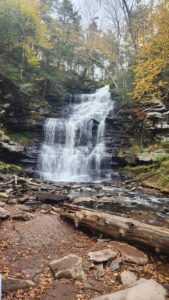I have a new article addressing an important question of Pennsylvania constitutional public trust law that is also central to understanding the public trust doctrine and the role it plays and can continue to play in other states and countries to address pressing environmental challenges.
Pennsylvania’s Duty to Conserve and Maintain Pubic Natural Resources
The public trust clause of Pennsylvania’s environmental rights amendment recognizes the Commonwealth’s responsibility to “conserve and maintain” “public natural resources” for the benefit of present and future generations. The state’s supreme court has held that the Commonwealth has a fiduciary duty to conserve and maintain the public trust corpus—public natural resources—with prudence, loyalty, and impartiality. And it has held that present and future generations are simultaneous beneficiaries of this public trust. All of this is designed to protect public natural resources.
But an important question about the constitutional text remains: what does it mean for “public natural resources” to be “the common property of all the people, including generations yet to come?”
What Common Property Means
This article answers the question by arguing, first, that “public natural resources” includes types of resources that the Commonwealth owned prior to the amendment, like state forest and park land, as well as other types of resources such as air, water, fish, and wildlife, that the Commonwealth did not own prior to the amendment.
Second, it explains the Commonwealth’s duties in managing “common property”—duties that are based on longstanding public trust law and that supplement and reinforce those described above. Simply put, these duties involve public availability of public natural resources, which includes but is not limited to their protection.
Because public natural resources are “the common property of all the people, including generations yet to come,” they cannot be private property. The Commonwealth must ensure that they are used only for trust purposes, and that they are available to present and future generations. The Commonwealth cannot transfer ownership or control of public natural resources to private parties in ways that compromise their public availability or the terms of the trust.
Why It Matters
This understanding of Pennsylvania’s public trust clause provides a basis for strengthened protection of public natural resources. It also gives full effect to all of the words of the public trust clause. And it answers arguments that “common property” limits the meaning of public natural resources to property that can be owned in a conventional sense.
The concept of common property, moreover, is central to the meaning of the public trust doctrine, not only in Pennsylvania but in other states and countries. It focuses the government’s trust duties on those natural resources most essential for human survival and well-being. It helps ensure that these resources can be used and enjoyed by all people in present and future generations, regardless of income or social status, not just some. And the concept of common property protects the availability of these resources for future generations because future availability requires their conservation and maintenance by the current generation. All of these are needed in the years and decades ahead because of the many environmental challenges society faces, including climate change.
Where to Find the Article
The article, Public Natural Resources, Common Property, and the Public Trust Doctrine, is available here.

